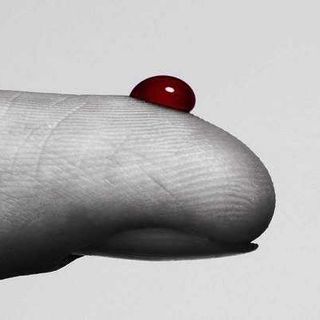Humans are wired to be touched. Hugs, cuddles, pats on the back, light caresses — they are all integral parts of the human social experience. When an individual experiences such touch, their brain relaxes and heart rate and blood pressure slow down. Levels of the stress hormone cortisol drop, while oxytocin — the happy hormone that is triggered during sex — shoots up, leaving satisfaction and happiness in its wake. Now, put the touch-hungry human in a situation where they can’t be touched — prisoners in solitary confinement, babies in NICU, the global population under coronavirus lockdown — and skin hunger, the neurological phenomenon that explains being touch-deprived, kicks into high gear.
“Nature designed this sensory modality to increase our feelings of wellbeing in social environments. It’s only present in social animals that need to be together to optimise their chances of survival,” Alberto Gallace, a neuroscientist at the University of Milano-Bicocca, tells Wired.
Modern-day humans don’t really touch each other very much. People spend 98% of the time they are in public on their cell phones, according to the Touch Field Institute, which means we were all a little touch-deprived anyway. The Covid19 lockdown, however, is catapulting this phenomenon of touch deprivation into stark focus, with humans in isolation in their homes robbed of the choice to touch and be touched. This skin hunger can lead to severe mental health effects, such as anxiety and depression, stemming mainly from loneliness. Another less-talked-about casualty is human beings’ perception of themselves, especially of their self-esteem and body image, which can take a hit when individuals are touch-deprived.
“I … miss the stuff that comes with greeting people — hugs with friends and handshakes for work. It’s been very long since I’ve done anything more than say ‘Hello,'” S., 24, says. “Over time, it’s become very apparent that you crave a little pat on the back or shoulder around the arm. To me, these things mean reassurance, comfort. Like many people, I stress out every now and then about whether or not I’m being a good friend, and small things like that make me feel reassured and calm,” he adds.
Related on The Swaddle:
It’s Time We Negotiate Non-Sexual Consent As Well
When affectionately touched by a friend or family member, research shows an individual tends to feel socially included, which staves off negative feelings of rejection and strengthens social bonding. Upon experiencing comfortable touch, they can feel welcome, at ease, and liked — all of which lead toan increase in positive self-perception. Even in the elderly, studies show those who received affective touch from their nurse practitioners reported higher self-esteem.
For Divya, 31, touch makes up an important part of how she views her self, and contributes to her self-esteem. “I miss … a caress on the head, a consoling one on my back, or simply my hands being held,” she says. “When friends, relatives, and acquaintances make that reassuring gesture of holding my hand or patting my back… it’s validating on some level.”
In addition to self-esteem, a loving touch, which scientists also call affective touch — be it between a parent and a child, or between friends or romantic partners — can increase an individual’s sense of body ownership and contribute to a healthy sense of self, found a 2013 study. Upon encountering affective touch, skin sensors send signals to the brain, which then analyses them to construct a mental picture and an understanding of the body, scientists found. In the absence of affective touch, humans can experience body image problems.
In women especially, scientists found that those who experienced more affective touch — called tactile nurturing — as children were less likely to strive for thinness as adults, indicating a more positive body image. In women who didn’t receive affective touch as children and who desired such touch as adults, scientists found a higher drive for thinness and more body dissatisfaction. There’s a two-way tie between body dysmorphia and the perception of affective touch — not only does a lack of the latter contribute to the former but the presence of the former also warps the experience of the latter. For example, scientists have found those struggling with anorexia have a less pleasant perception of affective touch.
It’s human nature to seek validation. One of the most common physical ways to do so is through touch — be it sexual, in the form of physical manifestations of desire, or non-sexual, in the form of hugs and other physical ways to show care. When another person feels comfortable enough to touch us and, in turn, be touched — even in fleeting ways — it serves as reassurance that we’re wanted. Now, under coronavirus lockdown, people are stuck in their homes, touch-deprived and without this reassurance, reporting severe skin hunger that is resulting in mental health issues.
S.’s last memory of a positive exchange of touch was giving an old friend a champi in late February, which he remembers fondly. He says he is struggling with being unable to physically reassure his friends during this time of touch deprivation. “Telling someone you care about them over a text versus actually being able to hold their hand, put an arm around them — they’re worlds apart.”




